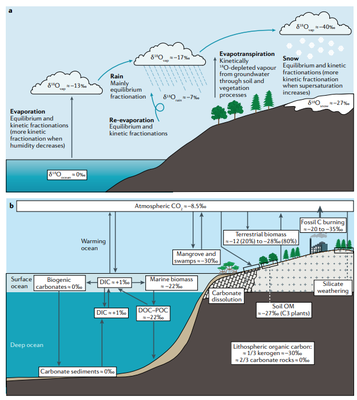Understanding Planet Earth through the Ages
Prosenjit researches and teaches about Earth systems and climate change. His research focuses on global and regional climate change in time and space using isotope geochemistry to understand climatic and atmospheric processes. He has developed isotopic tools for reading environmental parameters preserved in the rock record and mechanisms that control paleotemperature proxies. Mainly, his group introduced new methods for analyzing carbonates using the isotope ratio mass spectrometer and uses novel proxy carbonate clumped isotopes for past sea and air temperature determination. The group assesses kinetic effects in organic and inorganic precipitates in the natural environments that affect stable and clumped isotopes.
The lab is equipped with a new method for precise, accurate determination of clumped and stable isotopes ($\delta^{18}O$, $\Delta^{17}O$ excess, and $\delta^{13}C$) in carbonates from diverse origins. Several reference carbonates that are homogeneous, available in large quantities, and are linked with internationally accepted reference frames for stable and clumped isotopes were developed in the group. These techniques were applied to reconstruct paleotemperature and paleo-precipitation in different time periods during the Phanerozoic. Other research initiatives undertaken at IISc include:
- understanding the carbon cycle and hydrological cycle linked with monsoon and global circulation;
- monitoring of atmospheric CO2 concentration and isotopes for identifying emission sources from anthropogenic and natural sources from both continental and oceanic regions.
